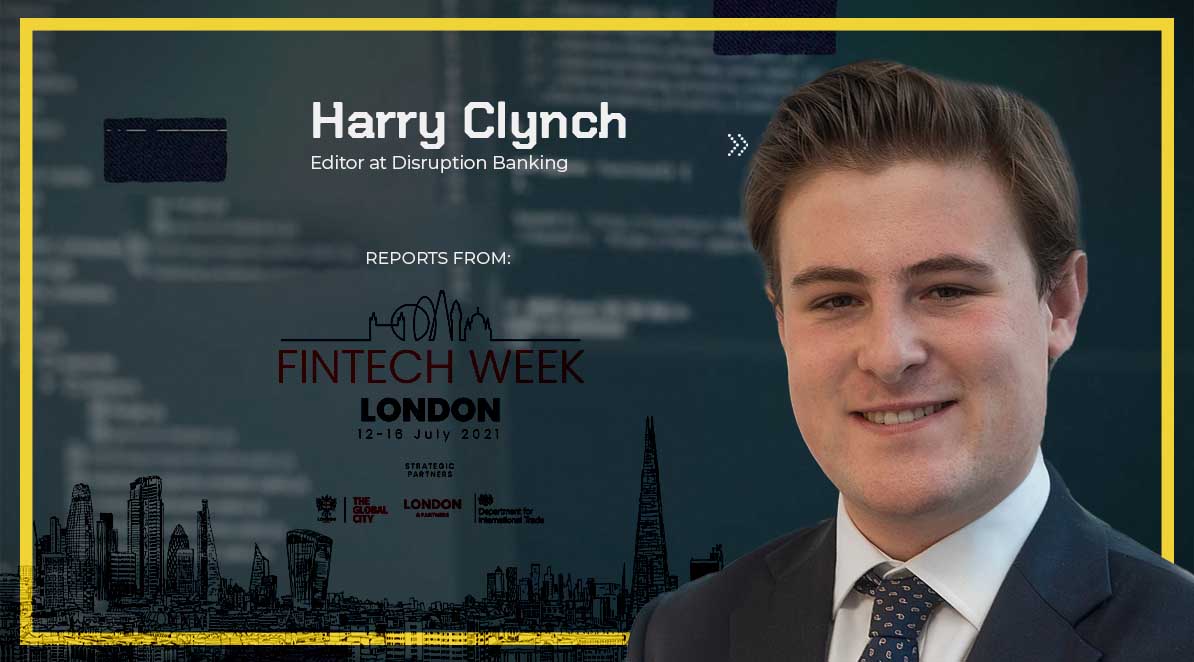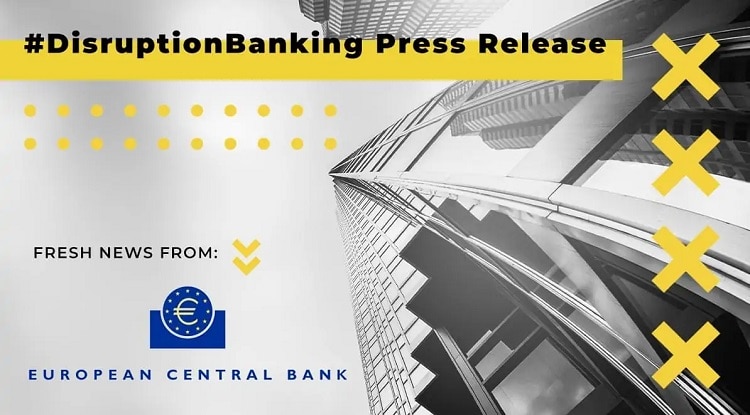In what was our first (partly) Face-to-Face conference for over sixteen months, #DisruptionBanking was proud to cover the FinTech Week London event earlier this month. Whilst the opening and closing days remained online (the Zoom days are not behind us just yet), two days were hosted on-site in Aldgate and one in Canary Wharf’s tech hub Level 39. Let us look back at some of the highlights of these sessions, and consider some of the questions that were raised.
Prominent FinTech influencer Chris Skinner commenced the first Aldgate session with the question: “do you trust your government?” This somewhat provocative question, perhaps intended to be rhetorical, reflects much current FinTech discourse. It essentialises the tension we are seeing as FinTech and DeFi protocols are becoming of greater prominence: how to balance some of the defining features of these industries – most notably that they are decentralised and (theoretically) free from government interference – with stronger calls for consumer protection? Skinner suggested that self-regulation within the crypto industry is a more credible, and indeed more trustworthy, option than government regulation. This is a sentiment that is rooted in the founding libertarian principles of the Cypherpunks. It is an idea with which many in this space will concur, but is also one that is unlikely to prove viable with the regulators. All markets, after all, require appropriate regulation to ensure that businesses are protected, consumers are protected and the financial system itself is protected from those seeking to exploit or misuse it. The challenge for governments and regulators will be how to implement effective regulation that does all of this without undermining the best features of FinTech. That is to say, how do we channel the most innovative entrepreneurial energies that are out there without wandering into the anarchic?
From Zoom to a Room #FTWlondon pic.twitter.com/WaUhgbSIgg
— Digital Startup (@digitalstartup5) July 13, 2021
Imran Gulamhuseinwala, Trustee at the Open Banking Implementation Entity (OBIE), looked at how Britain’s adoption of Open Banking is becoming a case study for many other countries around the world. This is because Open Banking – defined as “a banking practice that provides third-party financial service providers open access to consumer banking, transaction, and other financial data” – has a number of qualities that enhances both competition and compliance. Competition is improved because it becomes easier for consumers to manage multiple products, avoid charges or boost savings through a single digital platform. With greater transparency on consumer data, established banks are also forced to offer a better service to retain custom. In terms of compliance, Open Banking offers a secure framework for data exchange and collaboration – meaning that large volumes of data can seamlessly flow between market participants. For this reason, Open Banking, and particularly that which is practiced in the UK, is becoming seen as a much better alternative to traditional forms of activity.
Ron Kalifa OBE telling #ftwlondon why he prefers talking 'Open Banking' and not 'Fintech': pic.twitter.com/Fmfjnp0kQz
— Digital Startup (@digitalstartup5) July 13, 2021
Ron Kalifa, who was recently asked by Rishi Sunak “to conduct an independent review to identify priority areas to support the UK’s fintech sector”, took this idea one step further. He argued that “Open Banking” should itself be the dominant piece of terminology rather than “FinTech”. After all, Open Banking represents a kind of collaboration between the public and private sectors, the banks and FinTech industry: it is the culmination of all these industries rather than an offshoot of one. Semantic debates aside, he spoke of his work leading the Chancellor’s review and the government’s sandbox – the Centre for Finance, Innovation and Technology – that is attempting to build a broad coalition across the market. Kalifa also emphasised that the government is keen to invest more in the FinTech (or rather Open Banking) industry, with a “Digital Economy Taskforce” now attempting to create one single vision for future Digital Policy in the UK. It is hoped that these initiatives will increase investment in FinTech from £5.3 billion in 2020 to £24 billion by 2030.
What makes a great panel? Contrasting opinions 👀 Robert Courtneidge moderated an interesting panel discussion on “Financial Crime” with Andrew Churchill, @BSI_UK, Sarah Francis @kompliglobal and John Sam-Kubam @crownagents. @FintechWeekLDN @Level39CW pic.twitter.com/uRtKpuqLP4
— Level39 (@Level39CW) July 15, 2021
Over in Level 39, a particular highlight was the panel hosted by Robert Courtneidge on financial crime, joined by panelists: Andrew Churchill of BSI, Sarah Francis from Kompli Global and John Sam-Kubam of Crown Agents. As Sam-Kubam highlighted in particular, FinTech companies globally face a major danger as they expand: how do they mitigate the risks that come from a (sometimes exponentially) larger client base without rejecting legitimate business opportunities? More clients and larger transaction volumes are of course essential to growth but also increase the scope for financial malpractice to slip through the net.
One major reason this may happen is because FinTech firms are sometimes unable to keep up with their own growth. In the the words of Sam-Kubam: “As you expand rapidly, your costs also start to expand. Imagine a firm that is making 200,000 payments a quarter and has a team of about ten people looking at risk mitigation […] if you suddenly double that activity do you double that headcount?” Interestingly, he posited that artificial intelligence (AI) and machine learning may in the future be able to help cut through these large volumes by highlighting potential areas of concern. This technology could compliment the work of compliance officers, creating a “dynamic approach to risk management” in which human expertise and technology are fused to create a more comprehensive, and hopefully more effective, approach to compliance.
The questions raised at FinTech Week London reflected the debates that will shape the FinTech industry. They are issues that will need answers in the months and years to come. In some cases they strike at the heart of the philosophies underpinning the industry, and how companies and institutions respond will shape the future of FinTech. Now we look ahead to Money 2020 in Amsterdam, and Wonderland AI in Belgrade, where we will see how the industry’s thinking has developed in the meantime.
Author: Harry Clynch
#FTWLondon #FinTech #Level39 #OpenBanking #AI
















